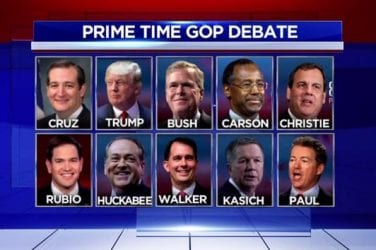It has been almost half a century since Joe Biden first entered politics. When he formally announced his interest in the 2020 presidential race, Biden declared that he intends to address two issues: the workers who “built the US” and the values that could potentially bridge its divisions. During his campaign to beat President Donald Trump, the former vice president touted his experience as key to leading the country from its current crisis.
Biden and the US have both undergone significant political shifts since he began his career in his home state of Delaware as a New Castle County councilman. Currently, the US is facing several challenges, from racial inequity to the Coronavirus and political dysfunctions. Partisan dysfunction in US politics is certainly something the No Labels organization seeks to combat, and it is hoped that Biden can bring about more unity with regard to how he addresses health-care rights and environmental protections, as well as creating new economic opportunities for workers, and restoring international alliances.
With a five-decade-long tenure, Biden’s key policy positions have evolved tremendously. Here are some of the ways that his victory signals a significant amount of convergence to Trump’s policies in the years to come.
Restoration of America’s reputation
President-elect Joe Biden has previously stated that the nation’s credibility and influence have declined since Barack Obama’s administration left office. While Biden promised to focus first on national issues, he also declared to put the US in the lead again. Biden’s values on foreign policies will shift to engagement and multilateralism on the world stage as opposed to Trump’s unabashedly isolationist ones. Biden also intends to repair relationships with US allies and, in particular, the NATO alliance, which has been repeatedly threatened by Trump with funding cuts.
Biden has said that China is to be held accountable for unfair trade practices and extensive environmental pollution. Instead of using unilateral tariffs, Biden proposes to utilize coalitions with international democracies that China cannot afford to ignore.
Rejoining the global climate accord
According to Biden, climate change is an existential threat. By rejoining the Paris Agreement, he promises to rally the world in acting more quickly to curb emissions. Trump withdrew from this agreement, which had committed the US to cut about 28% of greenhouse gases by 2025, according to the 2005 levels.
While he does not embrace the jobs and climate package – the Green New Deal – proposed by the left-wing of his party, Biden will put forward a federal investment of $1.7tn in green technologies research in the next 10 years. He’s committed to ensuring that the US reaches net-zero emissions by 2050. This investment interlinks with his economic plan of creating jobs in the manufacture of ‘green energy’ products.
He will undo some of Trump’s policies
While the political odds of the recent presidential election were so close, several ways to defeat Trump would have been deployed, one major aspect being undoing some of his policies. Biden has promised to reverse some of the policies that were enacted by Trump within his first 100 days in office. These include policies that separate children from their parents at the US-Mexican border. He will end the travel bans on several majority-Muslim countries and rescind limits that were set on the number of asylum applications. He will also protect the ‘Dreamers’ – people who were brought to the US illegally as children – and make them entitled to federal student aid.
Economic policies
From agricultural reforms to anti-bankruptcy legislation, Biden has engaged in an array of economic policies. Being a former Foreign Relations Committee chairman, Biden has been well-known to favor ‘pro-free trade’, and already voted for the North American, Moroccan and Australian free trade agreements with the US.
During his tenure as vice president, Biden was tasked by the American Recovery and Reinvestment Act of 2009 with limiting wasteful spending of taxpayers’ dollars. This involved $800bn and was probably his greatest economic role. That said, the US economy is now working its way back to the levels before the COVID-19 pandemic. Biden’s economic plan focuses on raising the minimum wage to $15 an hour, investing $400bn in clean energy, and offering 12 weeks of medical and family leave, among others.
Finally, Biden plans to reform criminal justice and increase grants for minority communities. With the US gripped by race protests this year, Biden believes that racism must be curbed through social and broad economic programs to support minorities, and is offering a $30bn investment fund.
In regard to criminal justice, Biden has put forward policies to direct more funds to mental health; reduce incarceration; and address gender, race and income-based disparities within the justice system, while rehabilitating released prisoners. He will also create a grant program to incentivize states to eliminate mandatory minimum sentences, expunge prior cannabis convictions, decriminalize marijuana, and end the death penalty.







